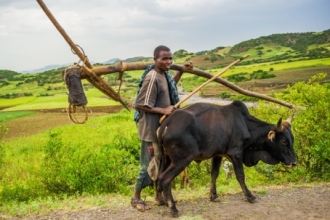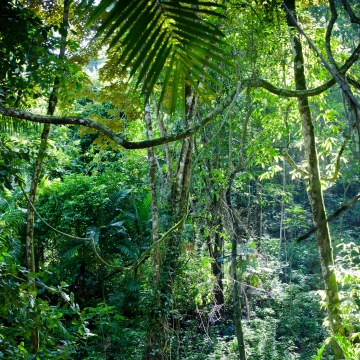Group decisions over the allocation of REDD payments: A natural experiment from Tanzania
The goal of this project is to link frameworks of community or group resource management rules and of individual incentives for resource conservation in response to policy to inform and improve the
Wildlife Corridors and Communities in the East and West Usambara Mountains: Toward Integrating Social and Biological Information in Conservation Policy and Priorities
The higher order goal of this project is to identify biodiversity conservation strategies on land surrounding protected forest fragments to determine the least cost approach improving conservation

Ethiopia: children, entrepreneurs benefit from forest access
When local communities in Ethiopia benefit financially from having access to state forests for harvesting timber and other products, they are more likely to invest in their children’s education and…
Implementing REDD+ Through Village-Level Forest Management Institutions
REDD+ (Reduced Emissions from Deforestation and Forest Degradation) is a form of payment for ecosystem services (a voluntary transaction in which a buyer makes a payment to a seller conditional on the ecosystem providing some service, such as carbon storage) aimed at decreasing carbon emissions from conversion of forest to farm land and unsustainable harvesting of forest resources in lower-income countries.
Community forests, carbon sequestration and REDD+: evidence from Ethiopia
REDD + is one of the tools under development to mitigate climate change, but it is not yet clear how to appropriately bring in the approximately 25 per cent of developing country forests that are managed by communities. Drawing on the economics of collective action literature, the authors attempt to shed light on whether forest collective action itself sequesters carbon.
Co-management framework for natural resource management
The goal of this research is to explore co-management in the forest and water resources in Kenya and how extent to which it contributes to sustainable resource management. Worldwide, co-management is
Evaluating Interactions of Forest Conservation Policies on Avoided Deforestation
We estimate the effects on deforestation that have resulted from policy interactions between parks and payments and between park buffers and payments in Costa Rica between 2000 and 2005. We show that the characteristics of the areas where protected and unprotected lands are located differ significantly. Additionally, we find that land characteristics of each of the policies and of the places where they interact also differ significantly. To adequately estimate the effects of the policies and their interactions, we use matching methods.
Natural resource collection contributes to child illiteracy in Ethiopia
This study looks into the effect of resource collection (fuelwood collection and fetching water) on child education using data collected from rural Ethiopia. We find that, in general, natural resource scarcity contributes to child illiteracy by increasing the work burden on children in rural Ethiopia. In particular, children’s participation in fetching water is found to be one of the most important factors reducing children’s ability to read and write. There is greater child literacy when household heads have more education and when the family lives near a school.
Household Tree Planting in Tigrai, Northern Ethiopia: Tree Species, Purposes and Determinants
The project analyzes the determinants of household tree planting. More specifically, the objectives of the project are twofold: first, we investigate the determinants of household’s decision to plant
Pagination
- Previous page
- Page 42
- Next page
